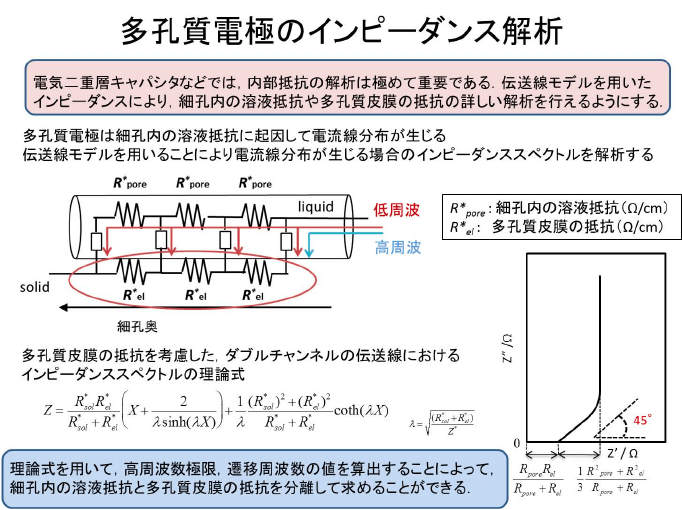

Research Topics
Research Topics
Themes related to lithium-ion secondary batteries
Lithium-ion secondary batteries are used not only in mobile phones and small electronic devices, but also in electric vehicles and artificial satellites. Elucidation of electrochemical or chemical behavior during discharge and power generation will lead to the development of innovative secondary batteries. Our laboratory aims to elucidate the reaction mechanism at the electrode / electrolyte interface of lithium-ion secondary batteries using the electrochemical impedance method and to establish SOH (health condition) monitoring technology.
Corrosion protection theme
We will elucidate the corrosion mechanism of construction equipment piping, reinforced concrete, electronic devices, etc., and develop anticorrosion technology. It requires knowledge in a wide variety of fields, so it is suitable for students aiming for highly specialized research positions.
Themes related to metal plating
Plating is a coating technology using a metal film, but in recent years it has been used not only for design surfaces but also for the production of various functional surfaces. In our laboratory, we are developing a new plating technology for manufacturing printed circuit boards with complicated wiring patterns for the purpose of application in the field of electronics.
Themes related to biosensors and ion sensors
By making good use of biological / biomolecules and organic molecules, it is possible to create a health monitoring device that can selectively measure specific substances. In our laboratory, we are developing a wearable sensor that can monitor components in body fluids using a printing method.
Themes related to biofuel cells
Biofuel cells that utilize biological reactions are attracting attention as next-generation energy harvesting devices. Biofuel cells can generate electricity directly using biomass resources such as sugar and alcohol as fuel. In our laboratory, we are developing a new wearable biofuel cell that can generate electricity from lactic acid in sweat and sugar in urine, and a self-driving health monitoring device.

















